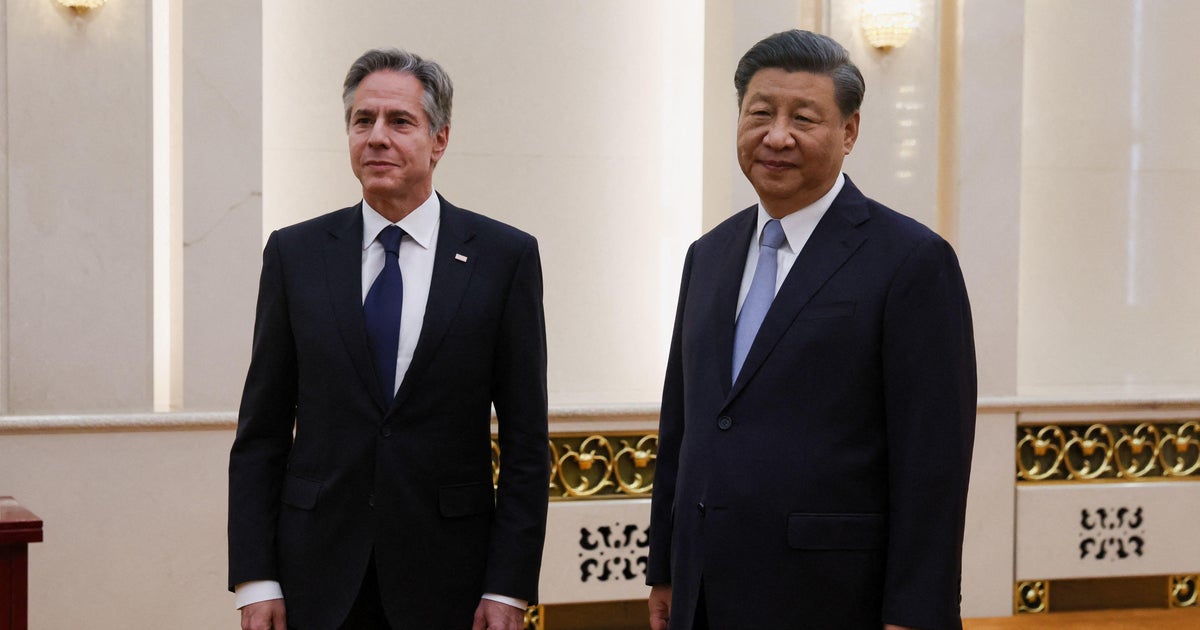The U.S. Secretary of State, Antony Blinken, recently concluded his highly anticipated visit to China. During his time there, Blinken held a meeting with Chinese President Xi Jinping after engaging in talks with other senior officials. The purpose of the visit was to repair the deteriorating relationship between the two countries, which Blinken described as being “one of the most consequential in the world.”
Why was Blinken’s trip a significant event?
Blinken is the first U.S. Secretary of State to visit China since 2018. Originally scheduled for February, the trip was postponed following the U.S. military shooting down a suspected Chinese spy balloon that entered U.S. airspace.
The meeting with Xi was confirmed by the U.S. State Department shortly before it took place.
In recent years, the relationship between the U.S. and China has significantly deteriorated, reaching a “low point” according to a senior Chinese official. This decline in bilateral ties can be attributed to various factors, such as Chinese provocations in the Taiwan Strait and the South China Sea, as well as China’s support for Russia during Putin’s invasion of Ukraine.
Blinken acknowledged the instability in the relationship and expressed the need for both sides to work towards stabilizing it during a press conference after the meetings.
“A real conversation, a productive exchange”
Blinken stated that his visit to China aimed to strengthen high-level communication, clarify positions and intentions on areas of disagreement, and explore areas of potential collaboration on shared global challenges. According to him, all of these goals were achieved.
He described his conversation with Xi as “important,” with both sides agreeing to follow through on previously reached understandings and making progress on other issues.
The Chinese leader also expressed approval, stating that the talks were “very good.”
Prior to meeting with Xi, Blinken engaged with other Chinese officials, including Wang Yi and Qin Gang. According to the Chinese government readout, Qin described the U.S.-China relationship as being at its “lowest point” since its establishment.
However, after more than five hours of conversation, both sides had positive remarks. A senior State Department official characterized the talks as a “real conversation, a productive exchange.” The Chinese readout also described the discussions as “candid, in-depth, and constructive.”
Both sides agreed to continue consultations on the guiding principles of China-U.S. relations, as emphasized in the Chinese readout.
Taiwan
One of the major issues contributing to the deterioration of U.S.-Chinese relations is Taiwan. Taiwan is a democratically self-governing island located about 100 miles off mainland China’s east coast. While Taiwan has functioned as a multi-party democracy for decades, China considers it part of its territory.
Xi has made “reunification” a core goal and has indicated a willingness to use force if necessary to assert control over Taiwan.
The United States has historically maintained a policy of “strategic ambiguity” regarding Taiwan, refraining from explicitly stating how it would respond to a Chinese invasion. President Biden’s remarks last year appeared to challenge this policy, but the White House later clarified that there had been no change and Blinken reaffirmed Washington’s commitment to the “one China” policy.
Although Blinken addressed the issue of Taiwan during his talks with Wang Yi, the Chinese government’s statement emphasized that China would not compromise or concede on Taiwan and called for the U.S. to respect China’s sovereignty and oppose Taiwan independence.
Ukraine and Russia
China’s neutral stance regarding Russia’s invasion of Ukraine has also posed a challenge to U.S.-Chinese relations. Last year, Blinken and other U.S. officials expressed concern that China could provide military aid to support Putin’s actions in Ukraine.
Blinken mentioned that China had previously committed to not supplying lethal aid to Russia for use in Ukraine, and the U.S. has seen no evidence to suggest otherwise at this time.
Military-to-military communications
Direct lines of communication between U.S. and Chinese military commanders, crucial for managing potential conflicts, have been severely limited for some time. This issue was highlighted during the spy balloon incident earlier this year, when Chinese counterparts ignored calls to dedicated crisis phone lines.
Given the tensions surrounding Taiwan and the South China Sea, the U.S. has been actively working to reestablish these emergency communication channels between front-line commanders. Blinken raised the issue multiple times during his visit to Beijing, but China has not agreed to move forward with it at this time.
Blinken emphasized the importance of restoring these channels, emphasizing that they are necessary to manage the relationship responsibly and avoid conflicts. He referred to the discussions on this matter as a “work in progress.”
Denial of responsibility! VigourTimes is an automatic aggregator of Global media. In each content, the hyperlink to the primary source is specified. All trademarks belong to their rightful owners, and all materials to their authors. For any complaint, please reach us at – [email protected]. We will take necessary action within 24 hours.



